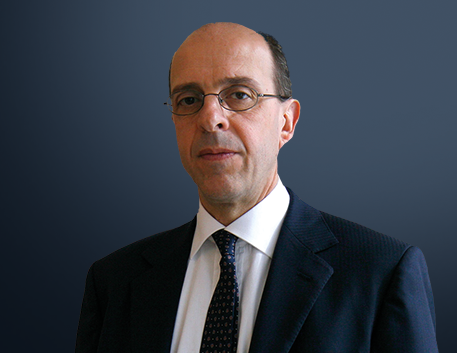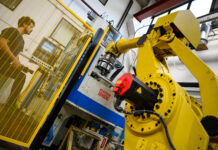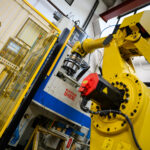Founded in 1909 and now in its third and fourth generation, Studio Legale Giovanardi is a historic firm in Milan, active both nationally and internationally, highly specialised in providing judicial and extrajudicial assistance in the areas of commercial law for companies and financial intermediaries. Thanks to a multidisciplinary team of over 60 professionals and the experience gained in handling complex corporate situations, today it is a legal boutique particularly focused on the corporate and financial sector, extraordinary transactions, distressed M&A and special situations. Lawyer Carlo Alberto Giovanardi, who has been animating the Firm originated by his grandfather for years, in this long interview talks about the way artificial intelligence is revolutionising the legal world, amidst the challenges, limits and opportunities that the technological revolution inevitably brings with it.
by Roberta Imbimbo
Lawyer Giovanardi, how is artificial intelligence revolutionising the legal sector?
Artificial intelligence (AI) is one of the central themes in the current debate on the future of the legal profession. In recent years, even a profession that is often castigated as traditionalist is powerfully moving broadly towards an increasingly digital future, embracing innovative tools for facilitating and industrialising certain operational processes. In the era of digital transformation, many law firms have decided to innovate their business model by transforming and shaping the classic profession of the lawyer, from defensive to advisory and business support, to invest in training and the development of digital skills and to adapt to new frontier technologies, in order to increase the efficiency of their professional services and thus maximise customer satisfaction, responding in an increasingly adequate and timely manner to their clients’ requests.However, if on the one hand the use of algorithms and mathematical formulas can help to decongest the judicial machine, which has been in a sluggish state for years, and can streamline the work of lawyers and judges, obliging them to approach the profession not only from a legal but also from a technological point of view, on the other hand we cannot ignore the fact that not all legal activities can be easily standardised and automated: some require a precise personalisation that cannot be separated from human judgement.
Are your firm’s areas of specialisation easily standardised? How have you, at Studio Giovanardi, dealt with the rapidly advancing innovation drive that is affecting the entire market?
Trying to proactively anticipate market trends, we have had to choose whether to position ourselves in those segments where technological innovation is a critical success factor, or whether to privilege those areas where it represents a mere efficiency tool, without replacing the professional. Today, AI – suitably trained – finds fertile ground in the automated drafting of contracts and acts that can be standardised, in the management of certain stages of due diligence, in the management of certain industrialisable credit recovery activities, and in predictive research on specific issues. But in critical situations, in which atypicality requires a critical analogical approach, evaluations and intuitions in a context with a strong negotiation component, AI does not seem to be able to offer real added value today. The world of so-called Special Situations is characterised by complex contexts that cannot be typified, with respect to which critical thinking offers a range of scenarios, outside any scheme, left to the sensitivity, experience and vision of the professional. For this type of activity, the figure of the lawyer remains central, both in providing highly qualified tailor-made advice and in identifying trial strategies tailored to the individual case. In the name of a more than century-old tradition – Studio Giovanardi was founded by my grandfather back in 1909 – and of highly specialised know-how on matters that are difficult to standardise, firmly convinced that not everything that is thought up by a machine is better than what is done by a man, we wanted to position ourselves in that segment of the market where AI still leaves room for analogue thinking and critical thinking. Today we use intelligent technology only where it actually streamlines processes, without delegating to it those choices that must necessarily be supported by the critical thinking of the professional, by his ability to recognise, choose and weigh up the specificity of a particular situation that cannot be objectively or intentionally ascribed to a predictable scheme, by his ability to balance secondary elements against those that would represent the primary drivers of decisions; all of this in order to identify, in contexts that are undoubtedly not repeatable, the best solutions that can balance the various interests at stake, as is required today by a system geared towards giving due dignity to an increasingly broad range of stakeholders. Special Situations are concluded by the will of the people more than by the will of the machines, precisely because the interests at stake cannot be traced back and reduced solely to certain categories that, with respect to the enterprise, have a specific role (think of the entrepreneur, the administrator, the different types of creditors, the workers, the territory, the allied industries, etc.).
In conclusion, what is your assessment of this revolutionary tool?
What we can say is that AI can and should be seen as an innovative tool at the service of the lawyer, capable of supporting him in becoming more efficient in certain activities where the focus is not on analogue critical thinking, such as certain due diligence operations, allowing him to concentrate on more value-added advisory and assistance activities, where the critical and analytical judgement of the individual professional continues to make the difference. It is therefore necessary to observe this ongoing revolution from a particular perspective, not to be short-sighted or resilient to change, but also not to be overwhelmed by the excessive attention that AI is currently receiving. We at Studio Giovanardi have decided to focus on specialised skills with a high competitive value, which allow us to face present and future challenges with solidity, with an adequate capacity for critical evaluation of every possible innovation (however revolutionary AI may appear today, other innovations are on the way that will soon make it obsolete; in fact, the innovation market is in constant turmoil), but without losing the references to an identity that has distinguished us on the market for years.

























































